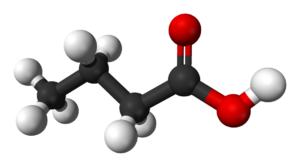Lately, we’ve been talking a lot about shotgun approaches. That is, approaches which have many benefits. Why is this important?
Well, in the early phases of treatment, it’s easy to pick more specific therapies with singular uses. Got infections? Great, use this rife, or that antibiotic. Got metals? Fine, go ahead and use Andrew Cutler’s chelation protocol (my favorite metal removal protocol). Have yeast? No problem, take some probiotics.
But later on, after years of treatment, things become harder for us. Our bodies are left as battered and tired; battlefields. The infections are mostly gone. The metals are mostly gone. But we are left with this mess, this stew, this festering low grade “blah.” It’s hard to find just the right thing, since there are so many little loose ends left festering.
This is why I have been so excited about hyperbaric oxygen therapy. You’ve read lots of posts on it recently (if you are new here, check the archives). Hyperbaric oxygen therapy is a shotgun approach – it helps in MANY ways, so you don’t have to isolate EXACTLY what is going on. (If you want me to help you get started with hyperbarics, drop me a note here).
OK, sorry for being long-winded, let’s move on to the supplement of the month. A while back, I told you about ghee butter. Ghee butter is amazing stuff, and it has helped a lot of people. I suggest you read about it in the link I just provided. Ghee butter’s most active ingredient is butyric acid.
The problem with ghee butter is that it contains very little butyric acid per gram of butter. And the stuff is a very high calorie food, so even people who bought ghee butter and used it, still only received a very small dose of butyric acid. You’d have to consume unrealistic amounts of butyric acid to get the full benefit.
That brings us to the supplement of the month. A while back, I purchased a CONCENTRATED form of butyric acid in this supplement (this is our supplement of the month!). I didn’t think much of it, and left it on the shelf for a while. Well, recently I’ve been taking it. It has been AMAZING. It has helped me more than anything I’ve done, in months!
Purchase this month’s supplement of the month:
I started doing some digging, and it turns out butyric acid is a shotgun approach. It has MANY benefits. Check out this long list of scientifically verified benefits! Seriously, click that link and read the list. I mean, read the ENTIRE list. Are you as impressed as I am? Do some of those problems sound familiar to you? Of course, the real proof is in the pudding, not in some list, and I can tell you, the stuff lives up to its name.
But the best part is that it is super non-toxic! It is basically a food derivative. So again, we have benefits without much serious risk. (Of course, you need to confirm this with your doctor before using it; make sure you get your doctor’s approval before use. I am not a doctor!). Please note that in my reading, I have discovered that people who use too much of the supplement can have some side effects. It is unknown whether these are herx reactions or side effects… but it seems with this stuff, the right dose is key… not too much, not too little. I even started with 1/3 capsule just to test out the waters. My ideal dose seems to be about 1/2 to 1 full capsule per day.
The shotgun approach: when you don’t know exactly what’s wrong, a supplement like butyric acid just goes ahead and takes care of business. I’m so glad I found this stuff.
I’ll geek out for a minute on some reasons why it may work so well in Lyme. Butyric acid is supposed to be made by good gut bacteria when the bacteria ferments fiber. But as we all know, Lyme patients have messed up guts. Not just from lots of antibiotics, but from our whole internal microbiome being jacked up. It’s likely we just aren’t getting as much butyric acid as we need. And the brain in particular, starts to really glitch when it doesn’t have enough butyric acid. There are droves of studies on the neurological benefits of butyric acid, including helping the brain metabolize energy better (low energy metabolism in the brain is linked with Alzheimer’s, dementia, and a number of other icky ailments).
Butyric acid is also known to decrease ammonia in the body, and we know that Lyme sufferers have too much ammonia.
It has even helped autistic kids a great deal, which is amazing to me since autism is such a hard battle to fight (plus, Lyme disease and autism are linked).
I can honestly say that I’m more excited about this Supplement of the Month than I’ve been about any product in a long time. I hope you’ll give it a try (after you get your doctor’s approval) and I hope you’ll report back with your results here (in the comments section below). Oh, and the stuff stinks, really bad…it has an awful odor. It’s normal. Don’t let it scare you away!
There’s a lot more to be said about butyric acid; a lot of amazing and cutting edge research. I’ll try to come back later and post more. But for now, this is enough information to get you started. You can always search Google Scholar or PubMed for more information on butyric acid. (For best results, I suggest using a search string that also includes an organ, for example, “butyric acid brain” or “butyric acid gut bacteria”).
Thanks again for reading. If you are new here you can check out all the past articles in the archives.



You must log in to post a comment. Log in now.